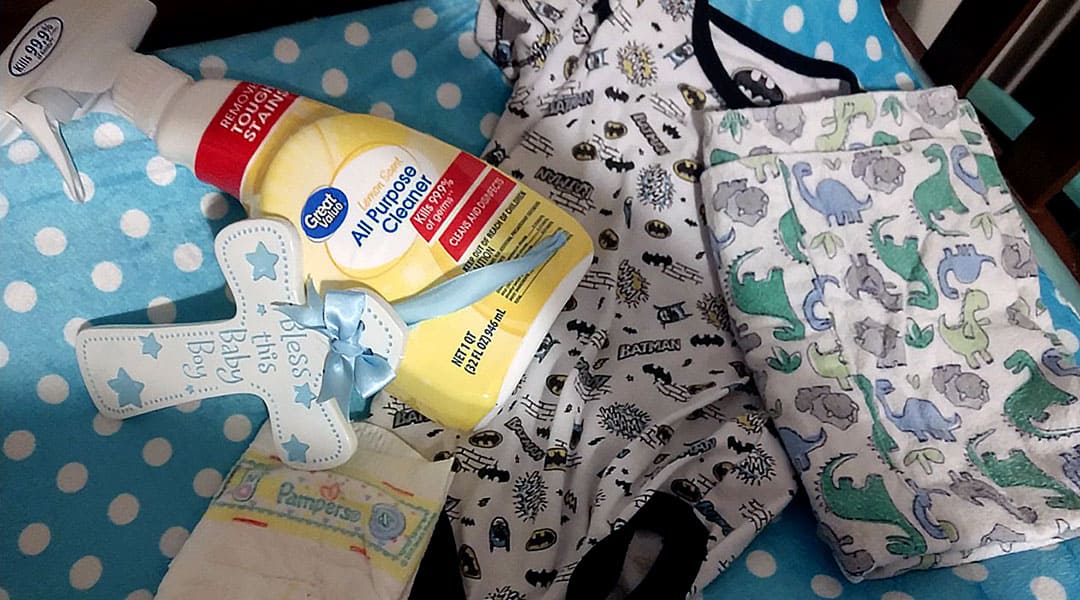Credit: Elizabeth Ray, the mother of baby Oliver.
Despite the challenging time of a global coronavirus pandemic, families are still welcoming their new bundles of joy.
Women preparing to give birth, or those who have already given birth, are faced with new restrictions in the midst of the pandemic. Parents are doing everything they can to keep their families safe.
Tamara Spaulding, 34, from Palmetto, Georgia, said she is doing what’s necessary to make sure her family and baby girl she gave birth to in January stay safe.
“We don’t have company and if we need something from the store, we make sure we have the necessary protection equipment. When we return home, we wash our hands, shower and sanitize the house daily,” Spaulding said.
Doctor visits are now different for new and expecting moms. Elizabeth Ray, 26, from Monck’s Corner, South Carolina, who is expecting a baby boy in May, recently experienced how going to doctor visits have changed for pregnant women.
“I have to be screened for the virus as soon as I arrive,” Ray said. “No one is allowed to come in with me either. When it’s time to give birth, my doctor told me that only one support person is allowed in the labor and delivery room.”
Not only does the pandemic cause families to take precaution, but it could cause extra stress and anxiety. Also, new moms who are dealing with postpartum depression may have a hard time with social distancing.
“It can be stressful, especially if a mom isn’t prepared or doesn’t have everything that she may need for the baby. It also brings a sense of worry not knowing if you’re doing everything you can to protect yourself as well as the baby. Expecting moms have to be very careful, especially going to doctor’s appointments,” Spaulding said.
Before the pandemic, some expecting moms had a birth plan. Now they’re currently worried about how their families will be present during the delivery. Many pregnant women do not visit their physicians due to concerns that they may be exposed to the virus.
“There’s a lot of extra stress. And the hospitals could change policies at any time to make me deliver on my own,” Ray said.
Parents face another challenge of making sure they have enough milk for the baby. Since the outbreak, there have been some shortages of infant formulas due to people overbuying. Mothers who breastfeed are less likely to have this problem.
Officials with the infant formula industry have worked to reassure the public. According to an article in USA Today, the industry relies on a massive supply chain to deliver it, from the suppliers of the nutrients that go into the formula, manufacturing plants, warehouses and distribution centers. The entire process usually takes 12 to 16 weeks.
“I’m glad I stuck with breastfeeding, because people are hoarding milk, which makes it hard for other mothers to find,” Spaulding said. Also some stores have a limit on other essentials such as diapers and wipes. I’ve never seen anything like this in my life,” Spaulding said.
One of the most difficult aspects of the pandemic is that family members won’t be able to spend time with the babies.
“I hate the fact that we can’t do that with her. I am very hesitant about going to the stores or anything but I don’t want to bring anything home to her. Just hate that my family and I can’t come and go as we please,” Spaulding said.




